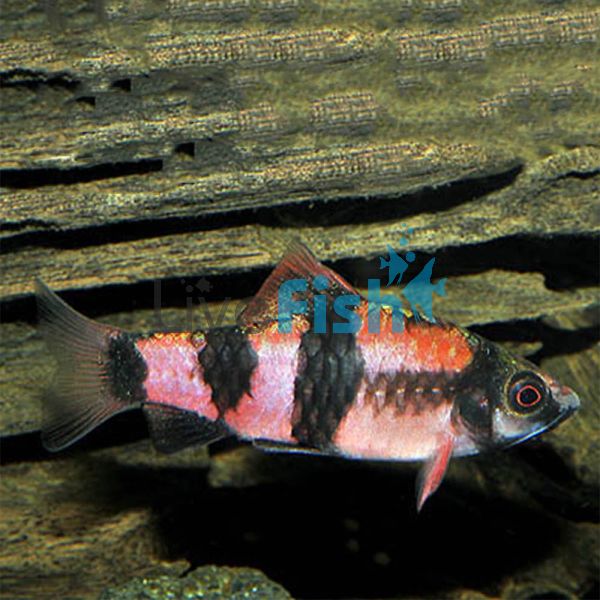Melon Barb 4cm
The melon barb makes for a stunning and unique fish that isn’t seen in many aquariums. For some reason these beautiful fish just do not seem to get the spotlight even though they have great colours, are very peaceful, and are fairly easy to keep. Only reaching around 6 cm these fish are active and are a great option to consider for smaller systems but their different mix of colours also makes them a perfect eye-catcher in larger community systems.
- Buy 4 for $12.97 each and save 10%
- Buy 8 for $11.53 each and save 20%
Melon Barb
The melon barb makes for a stunning and unique fish that isn’t seen in many aquariums. For some reason these beautiful fish just do not seem to get the spotlight even though they have great colours, are very peaceful, and are fairly easy to keep. Only reaching around 6 cm these fish are active and are a great option to consider for smaller systems but their different mix of colours also makes them a perfect eye-catcher in larger community systems.
As juveniles the melon barbs do not look all that flashy, they will generally have shades of white, grey, and black but once they mature, there is not much other fish that compete with the bright pink colour these fish develop. This watermelon pink actually becomes the main body colour of the melon barb which is a colour you hardly ever see naturally occurring in other aquarium species. To break up this metallic pink there are also bold black stripes from the face and end at the tail. Melon barbs also have a round, robust body that resembles a torpedo-style shape. This fish is very active and come from fast-flowing rivers which is why they make for such a great species when you are looking to add some activity in the tank.
Breeding the melon barb is fairly easy as once these fish reach maturity they will scatter eggs in the aquarium on a frequent basis. In a community aquarium setting, it is highly unlikely that the eggs will hatch before being eaten however placing the barbs in a breeding system with soft plants like java moss or a spawning mop will be the best chance for success. After around 24-48 hours of being placed in the breeding tank, the parents can be removed as they will show no parental care. Males tend to be more vibrantly coloured and slimmer than females.
Tank Recommendations for your Melon Barb
As melon barbs only reach around 6cm long they can be kept in aquariums with a minimum volume of 70 liters. This ensures that a school of around 6 fish can be kept which is also a must since the melon barb is a social schooling species. Melon barbs will love and look amazing in a well-planted aquarium, the plants also provide some cover for the fish and create a natural environment. They are also tropical species that will need a minimum temperature of 24 degrees and can go as high as 27 degrees.
Suitable Tank Buddies
The Melon barb will get along with a massive range of community fish as they show no fin-nipping or aggressive behavior. These will be awesome candidates as the primary schooling fish in a community aquarium.
Usually Compatible
Tetras, gouramis, corydoras, angelfish, and common community fish species.
Sometimes Compatible
Larger peaceful but territorial species such as chocolate cichlids, convicts, and elleoti may be an issue long-term with the melon barb.
Rarely Compatible
Shrimp and large aggressive species such as African cichlids, Oscars, and Jaguar cichlids.
Feeding your Melon barb
The melon barb is an omnivore and they will readily prefer meaty and green foods. They will consume a wide range of dry and frozen foods. Their diet should contain good quality slow-sinking pellets or flake and be supplemented with live black worms, frozen brine shrimp, and other fresh foods.
| Scientific Name | Puntius Fasciatus |
|---|---|
| Care Level | Easy |
| Common Names | Melon Barb |
| Diet | Omnivore |
| Fish Family | Cyprinidae |
| Lifespan (years) | 6 |
| Max. Length (cm) | 6 |
| Min. Tank Volume (l) | 70 Liters |
| Origin | India |
| Reef Safe | Yes |
| Sociability | Peaceful |
| Venomous | No |
| Water Conditions | 24-28° C, pH 6.0-7.0 |




